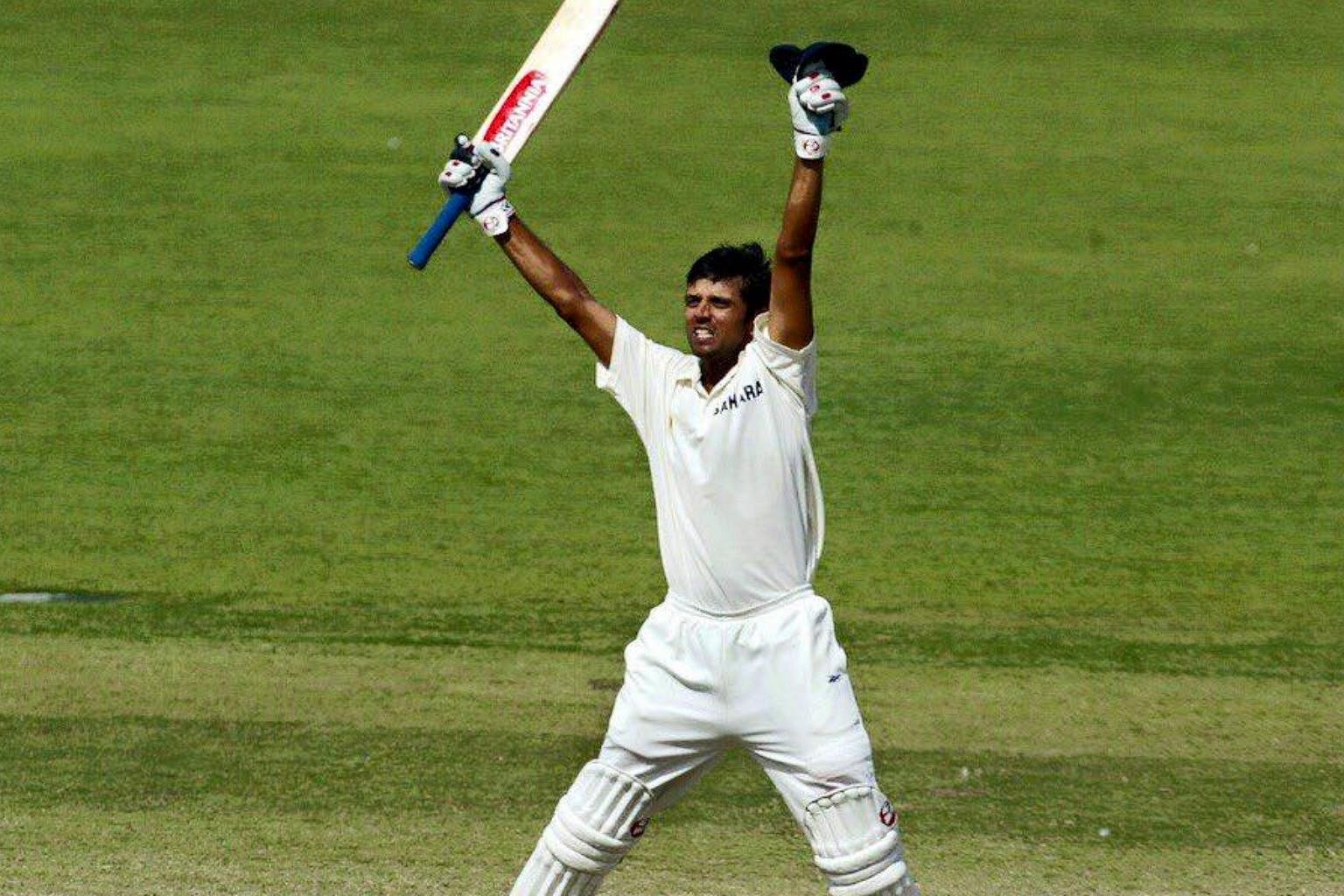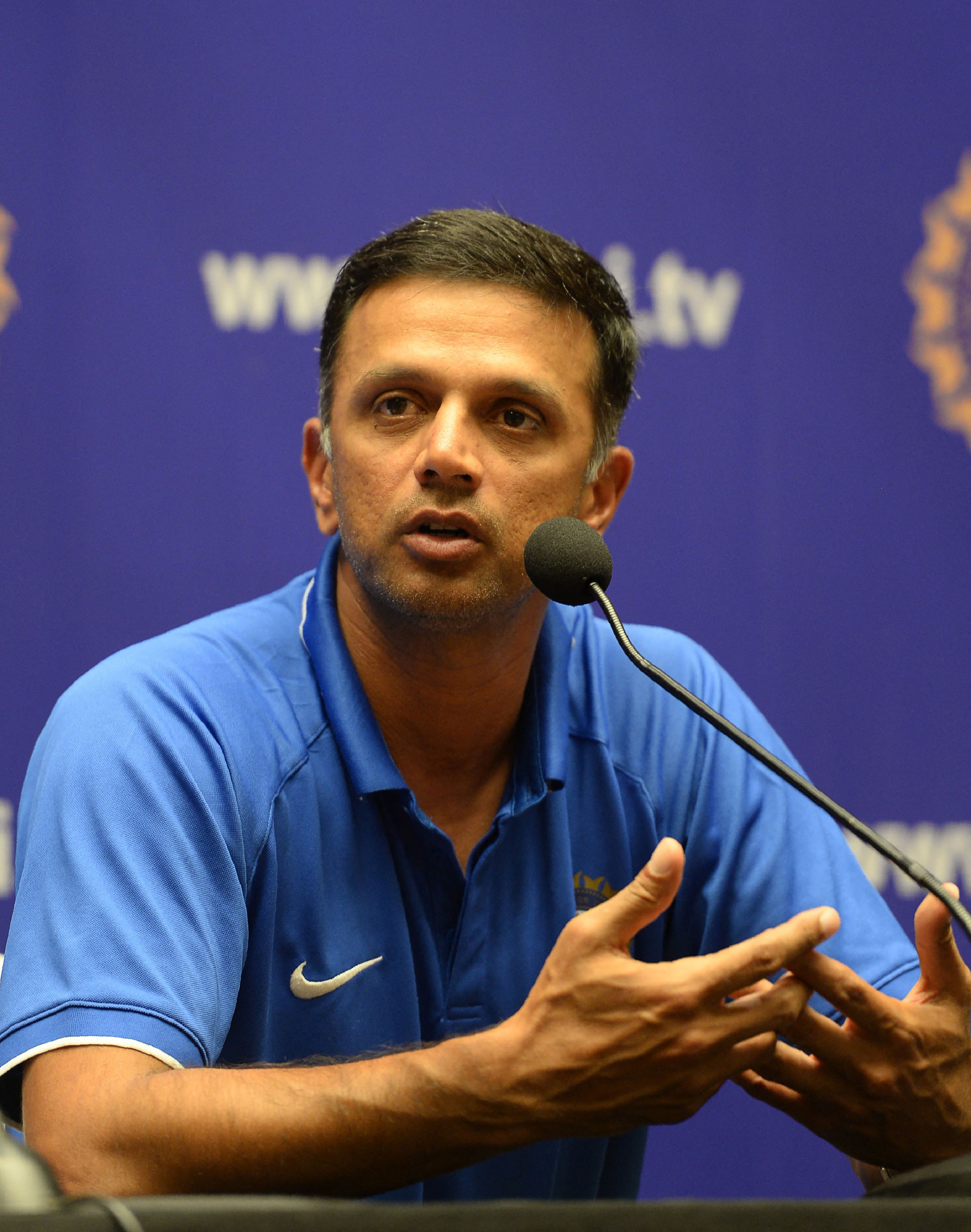Right-wing trolls are mauling the Indian cricket captain who bravely spoke out against religious bigotry. The team at the ICC Men's T20 World Cup have looked as stale as an over-marched army. Former players are issuing daily critiques and headlines termed a recent performance a "surrender".
Alarming? Naah. The freshly-appointed coach of India, Rahul Dravid, might at best arch an eyebrow. He played 164 Tests for India and hysteria lived outside his front door. Once, at a dinner, an inebriated guest advised him on batting technique and scoring speed. He smiled and listened.
New coaches for high-profile teams send a ripple through a sport. Hope in a tracksuit. This one is 48 years old, has the deportment of a clergyman with no craving for the limelight, and is about to advise a team whose hair is styled, tattoos are many and fame is loud. India's captain Virat Kohli has 44.4 million followers on Twitter. Dravid doesn't seem to have an account. It is a fascinating fit.
Like most coaching jobs this will test Dravid's inventiveness, steal his privacy, require equanimity in dealing with whimsical officials and demand a stoicism while explaining defeat to roughly one-sixth of unimpressed humanity. But Dravid has a CV as thick as his skin. He's scored runs for India (13,288 in Tests alone), captained his nation, led the national cricket academy and coached an Indian Premier League team and India's Under-19 and 'A' teams.
He isn't some retired professor of batting who is being made coach by virtue of past reputation, he's a student who's done his apprenticeship in coaching. Now, the idea of turning a fine team into an even better one is the sort of challenge that tugs at his intellect.
"If anyone can do it, he can do it," commands a clear voice from Brisbane. Greg Chappell, cricketing thinker, would know. When Dravid captained India, Chappell was coach, and he understands the job and the man.
"It's not an easy role," says Chappell, "for the coach must carry the demands and expectations of a billion people. He'll need all the resources he has."
Ask him to list the Indian's attributes and the Australian recites a list. "Courage," he starts. "Patience. He has calmness and a shrewd mind. His mind is always working. You have to continue learning and after Rahul finished playing he kept learning."
Football managers semaphore from benches and basketball coaches stride sidelines in a tie-tugging fury. They run their teams, in cricket a captain does.
As Chappell says: "(Coach and captain) don't need to be best friends, but you have to respect the person you're working with. The role of the cricket coach is misunderstood. He is the head of the support staff. The captain is the boss. Rahul will know when to step up and when to step back."
A few years ago the idea of a Kohli-Dravid collaboration seemed absurd, for they were fellows you'd find on opposite sides of a confessional box. Kohli, an arresting batter and authoritative figure, suffered occasionally from the cricketing equivalent of road rage while Dravid would be played by Tom Hanks in a movie.
But Kohli has grown up, met vulnerability and forfeited some of his power while Dravid has done his hard coaching yards. As Chappell states: "Rahul was not ready before and I don't think Kohli was ready for an equal partnership. Now they are and this is good timing."
As a player Dravid played imaginary strokes as he walked streets and rode elevators. Perfection was his pursuit. Kohli will enjoy that similarity for both share a miner's work ethic. They will dig forever to find their best.

In this Indian team most wear beards which will amuse Dravid who modelled for Gillette. So much has altered but the book-devouring Dravid does not live in the past. Adapting anyway was his signature: He'd bat at any position, learnt to catch at slip, agreed to be wicketkeeper and muted any urge to complain. Team first wasn't an idea but a truth.
Dravid as captain didn't always communicate perfectly with parts of his team and a reflective man will have repaired that flaw. He is a fine listener, absorbed by the art of his game and unimpressed by those late for the bus.
The outgoing coach Ravi Shastri, a very smart gent who forged a successful duet with Kohli, hurls quotes like grenades while Dravid is essentially non-violent. In 2011, invited to give the Sir Don Bradman Oration - previous invitees included an Australian Prime Minister and a decorated general - Dravid uttered a line which spoke of a grown-up athlete.
"When I was told that I would be speaking at the National War Memorial, I thought of how often and how meaninglessly, the words 'war', 'battle', 'fight' are used to describe cricket matches."
A decade later the environment is even more frantic and feverish and when India lost to Pakistan recently people were booked in India for allegedly cheering for the "enemy". Into this irrational world returns a man allergic to excess.

Sports' favourite modern saying is control the controllables and as Chappell says: "Rahul is intelligent enough to understand that. As a player he got into a bubble and it didn't matter what was going on around him. That should hold him in good stead."
Dravid joins an overworked, ambitious team, with a stinging Test bowling attack, a dented batting line-up and a need for ideas in white-ball cricket. The endless bubble life in cricket is grating on young spirits and if the schedule stays relentless a rotation of players seems inevitable. To all this Dravid brings sweat. India would prefer miracles.
This parent of two boys has a sly humour but played cricket with the same gravity that his late father watched it. It was sport but it was serious. He is, India's young players should know, a polite child of middle-class modesty who was born to a home where shoes were used till they wore out and then they were re-soled.
Waste, of shoes or of talent, he does not care for.


